EDITOR: THE HUMANISTIC SERIES
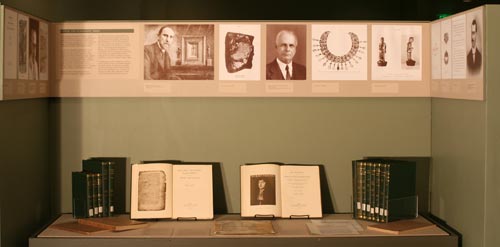
Click on objects on the picture to see larger images
More Topics
Convinced that publication should play a major role in the life of a prestigious university, Kelsey led campuswide efforts to emphasize research and its dissemination. In 1900 his request to the Regents for support for publication failed, but two years later, undeterred, he turned to the University Senate. The Senate's committee judged that Kelsey should be authorized to publish under the series title "University of Michigan Studies" in a suitable subseries. The first subseries to appear was the Humanistic Series.
The first volume, Roman Historical Sources and Institutions, appeared in 1904. Funded by the authors and money raised by Kelsey (an advance of $300 from Regent Hill), it set the precedent for future financing. The Regents contributed $500 to the second volume, but, that apart, the first four volumes were all paid for by the authors or by benefactors. No fewer than 17 volumes appeared during Kelsey's lifetime, several funded by a wealthy Detroit businessman and art connoisseur, Charles Lang Freer. Most were edited by Kelsey and his colleague Henry Sanders working in cramped conditions at home or in Kelsey's campus office.
The Humanistic Series brought great acclaim to the University. When the German delegates arrived in 1914 for the celebrations marking the 75th anniversary of the University, Kelsey was one of two professors they wanted to see. Entering his office, they exclaimed, "So this is where the Humanistic Series was born!"
Kelsey's aim in purchasing papyri, manuscripts, and artifacts of material culture for the University was to publish them and thereby contribute new knowledge to students, scholars, and the wider public. Some of the earliest volumes in the Humanistic Series publish the early biblical manuscripts purchased by Charles L. Freer in Egypt, which are now in the Freer Gallery in Washington DC. Other volumes focused on a wide range of material, including other manuscripts, papyri, Greek vases, and Byzantine jewelry. The series continued well after Kelsey's death in 1927, laying the foundation for what is today the University of Michigan Press.
-
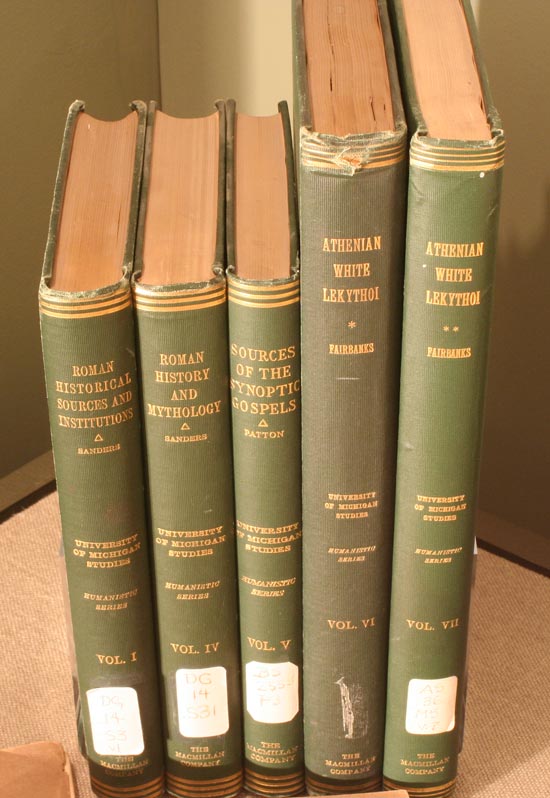
Five volumes (I, IV, V, VI, VII) of the Humanistic Series Kelsey Museum Library
-
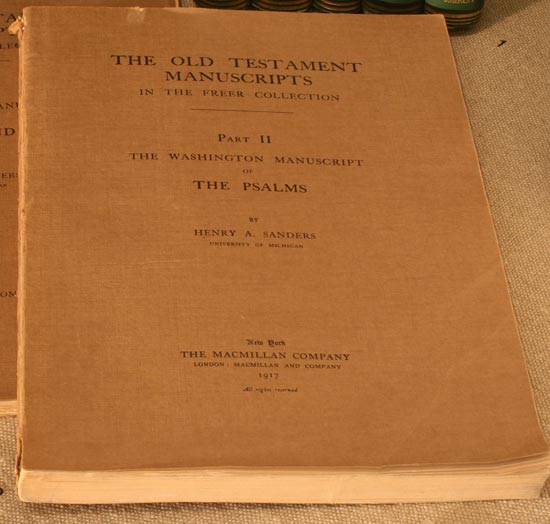
Volume VIII by Henry A. Sanders, The Old Testament Manuscripts in the Freer Collection, part 2 (The Psalms, 1971) Kelsey Museum Library
-
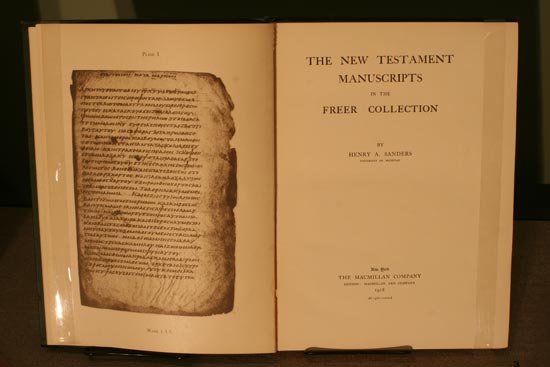
Volume IX by Henry A. Sanders, The New Testament Manuscripts in the Freer Collection (1918) Kelsey Museum Library
-
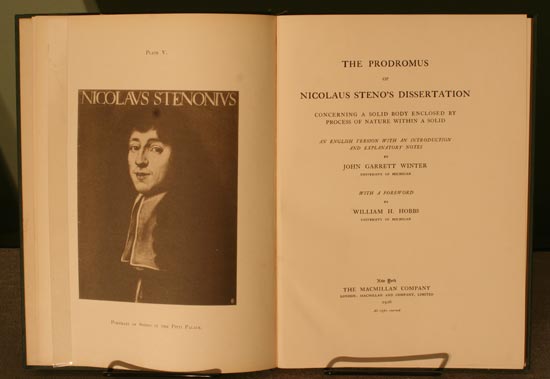
Subseries: Contributions to the History of Science. Volume XI, part 2, John Garrett Winter, The Prodromus of Nicholaus Steno's Dissertation (1916) Kelsey Museum Library
-
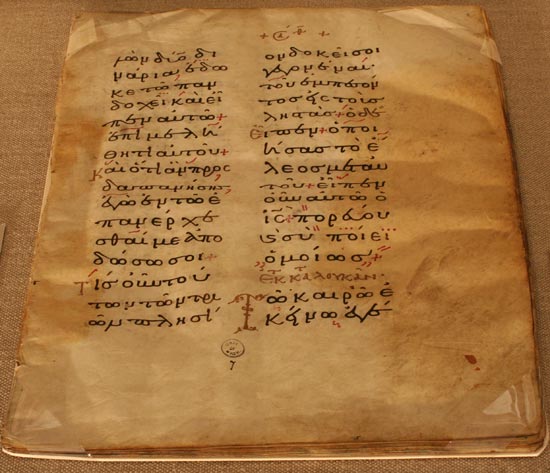
Fragment of a Lectionary of the Gospels. Vellum, 345–350 × 265–267 mm. Constantinople, last quarter of the 11th century Lent by Special Collections Library, University of Michigan Library. Mich. Ms. 7
During his first expedition to Europe and the Middle East (1919–1921), Kelsey purchased this manuscript from the dealer Andronicos M. Kidaoglon in Constantinople on December 23, 1919.
This fragment is preserved in a gathering of eight leaves containing readings from the Gospel of Luke to be read on Saturday and Sunday. In general, a Lectionary included a selection of liturgical readings drawn from the Bible and designed to be recited for the Eucharist. With the aid of a calendar, the reader could quickly identify the passage to be read on a particular day of the year. The script of this manuscript is highly professional, defined by scholars as calligraphic liturgical Perlschrift. The viewer can appreciate that some letters are enlarged, such as kappa, tau, and epsilon. The lection titles are written in gold over magenta ink majuscules, and symbols added as a mnemonic device for chanting (ekphonetic notation) are written in magenta ink.
-
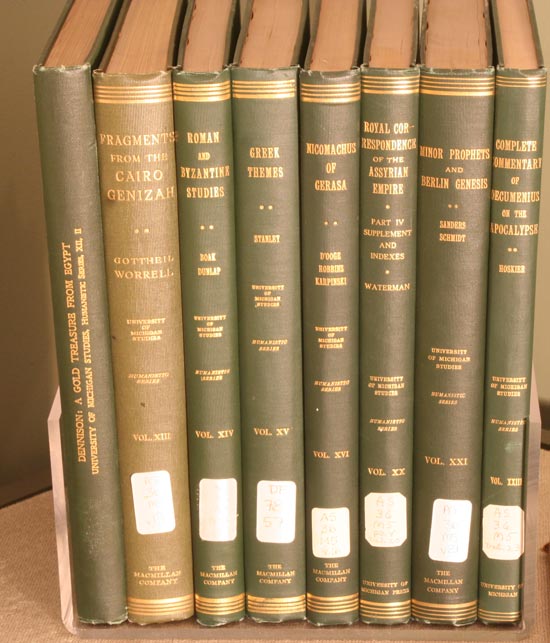
Eight Volumes (XII.ii, XIII, XIV, XV, XVI, XX, XXI, XXIII) of the Humanistic Series Kelsey Museum Library
-
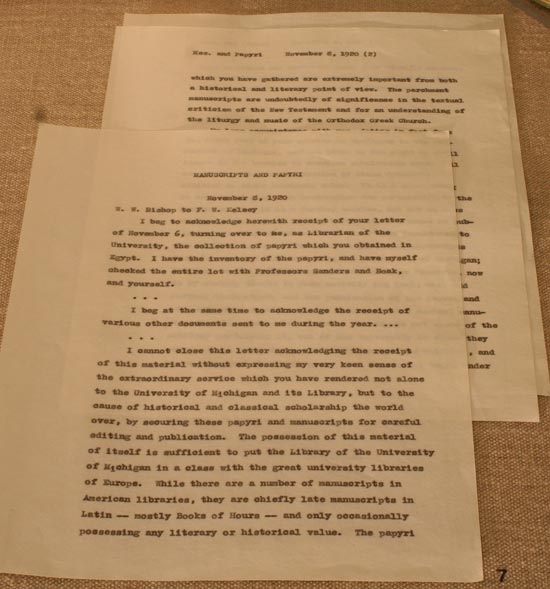
Letter from William W. Bishop, the University Librarian, to Kelsey commending him on the scope and importance of the materials Kelsey had brought to the University Bentley Historical Library, Kelsey Museum Papers
-
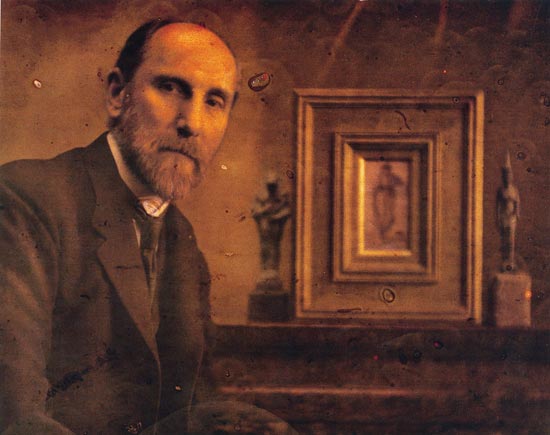
Charles Lang Freer, 1909 Gallery of Art Archives, Smithsonian Institution, Washington, DC
-
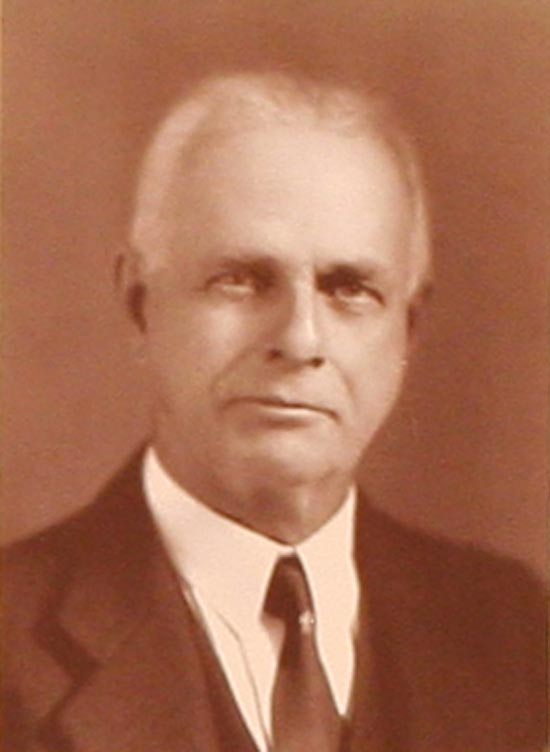
Henry A. Sanders, Professor of Latin (1893–1938) Bentley Historical Library, University of Michigan Faculty and Staff Portraits, ca. 1860–ca. 1960